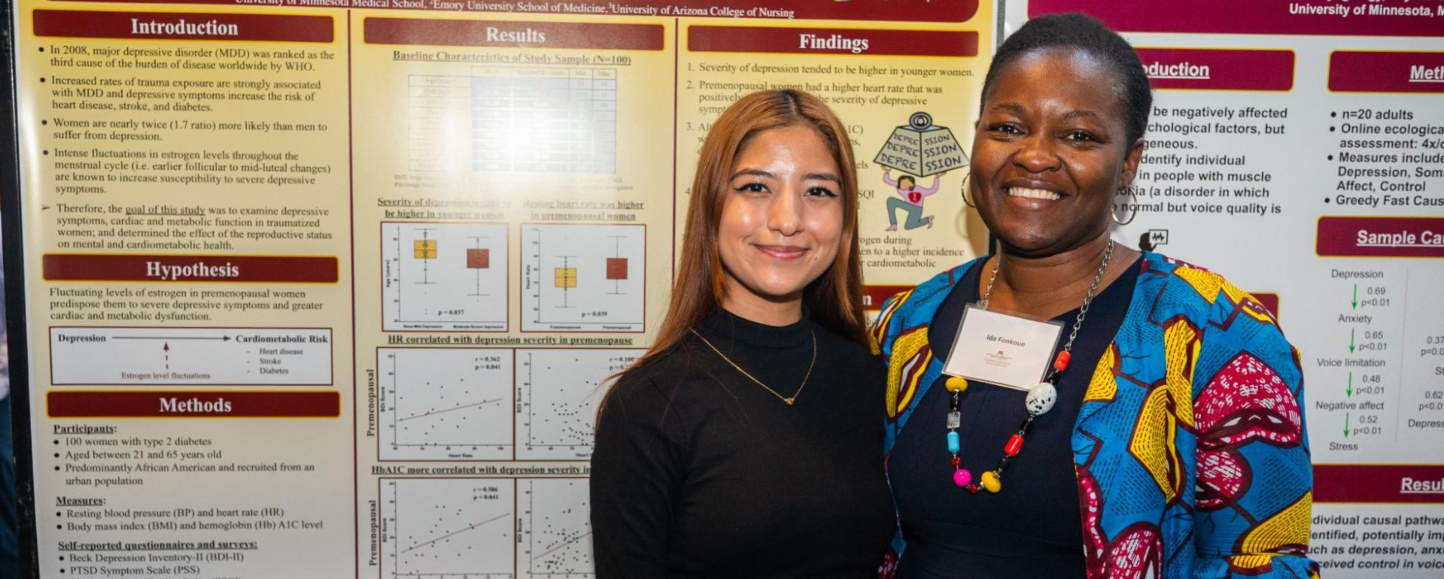Early Career Research Award

Dedicated funding and support to help recruit early-career research faculty who are underrepresented in medicine (URM).
ECRA scholars participate in the appropriate CTSI career development program
*Participate as an affiliate scholar, not funded by NIH
How we support ECRA scholars
Current ECRA scholars
Monica Campo Patino, PhD (K-R01 Scholar)
Department of Medicine; Pulmonary, Allergy, Critical Care and Sleep Medicine
Primary mentor: Marc Jenkins
Additional mentors: David Ingbar, Ana Núñez
Project title: Early interferon response in human tuberculosis
Sarah Espinoza, PhD (Pre-K Scholar)
Department of Pediatrics
Ida Fonkoue, MD, PhD (KL2 Scholar)
Department of Rehabilitation Medicine
Primary mentor: John Osborn
Project title: Autonomic and vascular mechanisms of cardiovascular risk in women with post-traumatic stress disorder (PTSD)
Arif Hamid, PhD (K-R01 Scholar)
Department of Neuroscience
Mentors: Mark Thomas, David Redish, Damien Fair
Project title: Dopamine contributions to flexible behaviors
Nathan Mesfin, MD (Pre-K Scholar)
Department of Medicine
Mentors: Adams Dudley, Steven Fu
Ebiere Okah, MD, MSCR (Pre-K Scholar)
Department of Family Medicine and Community Health
Mentors: Michele Allen, Pamela Lutsey, Diana Burgess
Project title: Race, racism, and race-based medical practice
Sabrina Scroggins, PhD (KL2 Scholar)
Department of Biomedical Sciences, University of Minnesota Duluth
Mentors: Jean Regal, Stephen Contag, Kris Hogquist, Mary Owen
Project title: Testing the efficacy of regulatory dendritic cell treatment in the prevention of preeclampsia
Former ECRA scholars
David Haynes II, PhD, MS (Pre-K Scholar)
Institute for Health Informatics
Primary mentor: Anne Joseph
Additional mentors: Tim Beebe, Adams Dudley, Constantin Aliferis, Sisi Ma
Project title: Understanding cancer disparities at the local level
Stefani Thomas, PhD (Pre-K Scholar)
Department of Laboratory Medicine and Pathology
Primary mentor: Reuben Harris
Additional mentors: Rachel Vogel, Weihua Guan
Project title: Proteome-level predictors of improved response to PARP inhibitor therapy in ovarian cancer